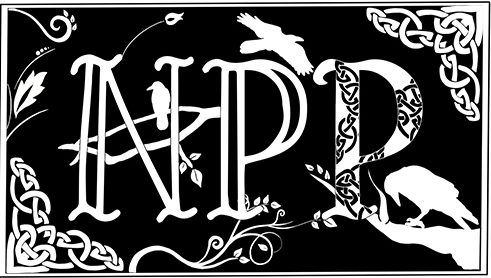
First, I read this book in a day and put off my own writing to finish it.
Athena’s Child is Hannah Lynn’s retelling of the Medusa myth from (mostly) Medusa’s point of view. Medusa is a beautiful and completely mortal girl whose parents differ on what’s best for her fourteen year old self. Her mother is trying to get her safely married off in as decent a match as possible, while her father is trying to protect his gorgeous daughter from the seedy old men trying to buy her body in marriage. Ultimately, her father wins and takes Medusa to the Temple of Athena in hopes the virgin Goddess will protect her. This deviates from the original myth some, where Medusa and her sisters are the daughters of immortals, but from a practical standpoint it makes sense and explains quite neatly how Medusa ends up a priestess in Athena’s temple.
Interestingly, while Medusa is a mortal with mortal woes (her family would be financially secure and no longer hungry if she was sold to a husband for a good bride price), there is significant interference in her life by the gods right from the start. Athena herself meets Medusa and tests her, marking Medusa as special in the temple. Fast forward some years, and Medusa is a leader in the temple, administering to the public the Goddess’s wisdom in disputes and acting as a women’s shelter advocate, because no man is allowed to set foot inside the Virgin Goddess’s temple. Her public life as a priestess is how Medusa catches Poseidon’s attention. His attack and the aftermath of Medusa’s transformation into a monster follows the myth, and begins to truly show how mortals, even those who have the privileged position of being a god’s chosen one, are still subject to unknowable capriciousness and cruelty.
I had a few issues with this one. The whole of Athena’s Child is a study in how a person can become a monster: we see the horror of Medusa’s meeting with her family after her transformation, where she discovers the terrible truth of her new powers in a way that reminded me why vampire stories are so awful: after turning into a monster, their first instinct is to run home to family, so the first people they destroy are their loved ones. Medusa’s sisters, who are punished for their own anger at Athena, become monsters in truth, joyfully murdering heroes and going off to terrorize other areas, but Medusa just wants to be left alone. She doesn’t lose her empathy or compassion: she tries for millennia to keep men from attacking her so she isn’t forced to kill them. The sisters are an excellent foil for Medusa, and the first half of the book is so good I gobbled down every word. My issue is the focus on Perseus’s backstory about halfway through the book.
Perseus’s story (including the rather excessive backstory of his birth) seems to be included because of his demi-god status, which allows for the insertion of other gods’ assistance (or interference) in mortal lives. It doesn’t feel genuine, and honestly I would’ve preferred skipping all of his origin story for more Medusa detail. He wasn’t the foil for Medusa he was intended to be in the monster/hero scenario, and the amount of time devoted to him felt like the beginning of a different book stuck in the middle of Medusa’s story. While I really enjoyed Lynn’s version of the finale, I wish she would’ve take the opportunity to describe the whole incident from Athena’s point of view. Perhaps that was intentional, because the Gods are unknowable, but it seemed like there was opportunity there to wrap up the reader’s questions.
Ultimately, I love Medusa retellings. Athena’s Child is a fast read and a true-to-the-Ovid-myth story of a woman who is forced, over and over in her life, to deal with the aftermath of the capricious and cruel nature men and Gods.

